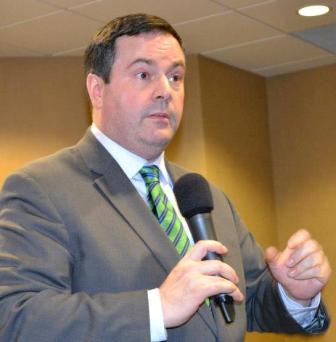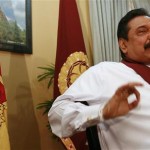The dominating narrative is dichotomous: at one end of the spectrum is the view that reconciliation has been achieved with the conclusion of the armed struggle and at the other end is the contention that reconciliation has not even begun to take place since the end of the war. The perceptions are equally remarkable. International interest in the imperative is in no small measure. The impact on domestic stability remains uncontested. Whichever viewpoint is adopted, consensus can be achieved only on the limited.
The danger of such a scenario does not augur well for Sri Lanka, a nation in transition having emerged from the throes of a three-decade conflict. Post-war efforts at reconciliation are undoubtedly taking place through both organized and natural processes; however the importance of the endeavour being state-led cannot be overstated.
THE LLRC
The final report of the Lessons Learnt and Reconciliation Commission (LLRC) calls upon the Government, among other things, to work towards a political solution acceptable to all communities. The home-grown mechanism, independent in nature though commissioned by the Government, was developed to reflect upon and recommend action, and drew on solicited and unsolicited submissions from the public in all areas of the country and hence has been hailed for its credibility and transparency. The report has been widely welcomed by key players and stakeholders across the board.
A National Action Plan (NAP) for implementation of the recommendations of the Final Report of the LLRC was drawn up by a distinguished team of government administrators appointed by President Mahinda Rajapakse. This team of persons worked at short notice to produce a document detailing designated implementing agencies and key performance indicators for each recommendation adopted. Civil society involvement was suggested though not included at that stage of the process. However, the plan by the President’s office was to widen stakeholder participation by involving civil society in the monitoring of the implementation of the NAP. The NAP is a useful document in that it incorporates aspects such as Key Performance Indicators which would undoubtedly increase the efficiency of the implementation process. The NAP was then adopted in Cabinet in August 2012 and the UN Human Rights Council was duly informed that a Task Force would oversee the implementation of the NAP.
STRUCTURAL AND INSTITUTIONALCHALLENGES
While it is a fact that there have been several meetings held at the Presidential Secretariat of the designated Ministries stated in the NAP, what is both valuable and indeed necessary at this juncture is an efficient coordinating mechanism to ensure the swift, competent and coherent follow up of implementation activities. Accordingly, an institutionalized mechanism to coordinate implementation activities will be immensely beneficial and must include a robust reporting and visibility strategy to communicate to both national and international stakeholders the status, progress and challenges in the implementation process.
We must realize that obstacles and impediments encountered in the implementation process should be acknowledged and is not a sign of weakness or inefficiency on the part of the country; such must be recorded and duly communicated to the public since it will reflect both commitment and seriousness in fostering reconciliation on the part of the government, the lack of which is a chief concern and criticism emanating from several national and international quarters.
A VISION
A significant lacuna in the implementation of LLRC recommendations is that reconciliation is currently being approached in a vacuum, separate and isolated from other related and critical national governance issues. It is in such a context that there exists and remains a need for a nationally adopted policy on reconciliation: a vision for reconciliation and fostering a sense of togetherness between the communities is starkly and conspicuous in its absence. A vision and policy that is state-led and has the consensus and buy-in from all factions in government is the need of the hour.
Such will serve four key purposes: First, it will help the process of reconciliation, inter-ethnic amity and national unity. Second, it will increase faith in the State by the minority communities and also demonstrate to the international community that Sri Lanka as a nation is keen and serious about achieving inter-ethnic unity. The latter becomes critical given the fact that the Sri Lankan conflict and post-conflict era has been under intense international scrutiny.
Third, such a project will provide vision and direction for post-war efforts in the country to the government, civil society, religious leaders, the business community, the media, the educationists and other stakeholders and ensure that efforts are coherent and coordinated. Fourth, it will demonstrate commitment to reconciliation, inter-ethnic harmony and national unity by the State and the government.
As a prerequisite to instituting a vision for national reconciliation, the Government of Sri Lanka needs to engage major concerns that have haunted inter-ethnic relations in the country for over three decades. Without correcting them, all efforts towards reconciliation will fail. While the Government’s efforts in the rehabilitation and resettlement processes in the North-East have been commendable, it is imperative that the important next step is taken – reaching out to the Tamil community to address their concerns and grievances.
A POLICY
A National Policy on Reconciliation was prepared by the Office of the Presidential Advisor on Reconciliation in early 2012 which clearly address the aspect of consolidating peace in the interests of genuine healing and reconciliation, both comprehensively and convincingly.
The Draft Policy was initially produced by a small group of persons characterized by multi-party, multi-ethnic representation. The Draft Policy was then circulated to leaders of all political parties and followed by a discussion with Members of Parliament including those Cabinet Ministers actively involved in working on issues of reconciliation.
Thereafter, the Draft Policy was taken through a process of consultation with key national stakeholders including religious leaders, civil society and the media. Following the several rounds of consultation, feedback and comments were carefully considered by the core group originally involved in drafting the Policy and amendments were incorporated as relevant into the existing framework before which a Final Consolidated Draft Policy was produced. The Final Consolidated Draft Policy on Reconciliation was then submitted to President Mahinda Rajapakse and the Presidential Secretariat for consideration.
THE SUBSTANTIVE CHALLENGES
While the end of the war has opened up unique opportunities to achieve lasting and sustainable peace and harmony, there remain key aspects that need to be addressed with some urgency.
To ensure that the dividends of national initiatives trickle down to grassroots level, there needs to be put in place systematic and systematized training programmes in soft skills and educational opportunities. To this end, forging public-private partnerships will be essential and critical though the challenge is that we still remain governed by a command-state economy which is wholly inappropriate in modern times. State control of training facilities and programmes with a monopoly over deliverables must be considered an artifact of the past that is not adequate to deal with the challenges of our times.
A second challenge is in the area of governance where any productive movement is hampered by a tussle between those advocating and opposing the implementation of the 13th Amendment to the Constitution. It is imperative that consensus be achieved on the fundamental requirement for post-war Sri Lanka, where there is expansion of power to institutions that are best placed to be responsive to the needs of local citizenry.
To this end, there must be a strengthening of local government institutions, citizen-consultation and accountability mechanisms. Sadly, while the focus has to be on ensuring responsiveness to the needs of grassroots communities and individual citizens, the current pre-occupation seems to centre on various formulations of power devolution to suit petty political pursuits.
A third challenge to achieving successful reconciliation and peace is the lack of a holistic understanding of the demands of restitution. An over-emphasis on issues of war-crimes has led to the subverting and neglect of issues which will most benefit the people of the country, both victims and survivors, of the rights to assuage grief, public mourning, psychosocial empowerment and above all a restoration of dignity.
A related challenge to restitution is that the emphasis on economic and infrastructure development with the almost negligible focus on human development which will eventually be counterproductive to the national reconciliation agenda.
ADVOCACY AND PRESSURE
A word on advocacy must be made in the context of Sri Lanka’s national reconciliation agenda. It is time to realize that exerting excessive pressure is not the panacea for inaction or negligence; on the contrary, it will only provide the much yearned oxygen to hardliners who weave conspiracy theories in an attempt to divert attention from what really matters. Alternatively, an approach of constructive engagement is the way forward and must be recognized by both national and international stakeholders.
Understanding the limitations of the national administrative system that is incapable of rebutting false allegations, and responding positively to real and genuine concerns of benefactors, communicating both progress and obstacles towards implementation of the recommendations of national mechanisms such as the LLRC is perhaps the reality that is bound to haunt our efforts in moving forward towards reconciliation, peace and stability.
While the substantive aspects of reconciliation must be at the core of achieving national stability, developing robust institutional mechanisms, effective coordination systems, a rigorous reporting strategy and an over-arching vision for reconciliation remains the need of the hour.
This article is part of an initiative to document and share the progress of the Sri Lanka government’s official reconciliation process. If you are interested in finding out more about the implementation progress of the LLRC recommendations, please visit Vimansa, a website independent of Groundviews, which will be launched in the first quarter of 2013.




 Leader of the left front Vickramabahu Karunaratne said at present
government has formed a group name Bodubala Sena to conduct anti-democratic
activities in the country.
Leader of the left front Vickramabahu Karunaratne said at present
government has formed a group name Bodubala Sena to conduct anti-democratic
activities in the country.






-60-60.jpg)
-600-1.jpg)



